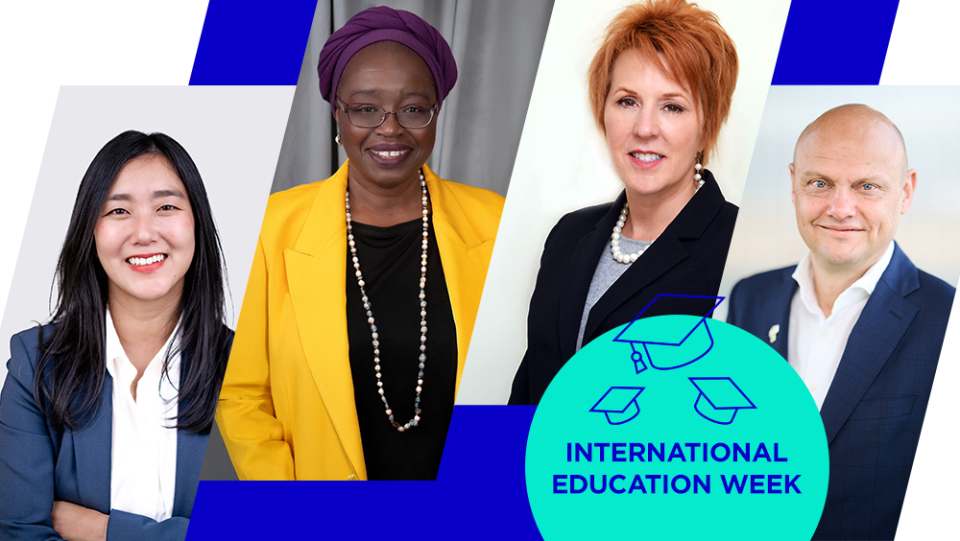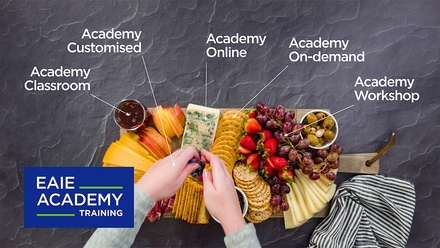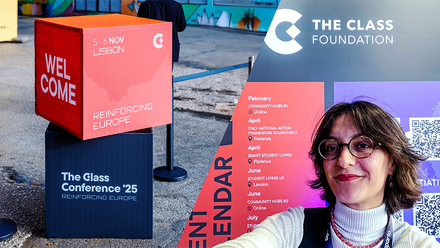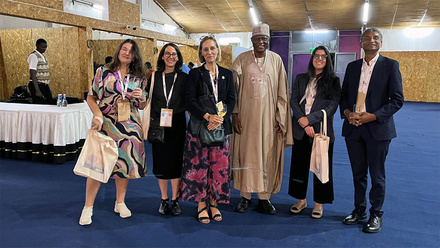Across the Atlantic, together: A CEO roundtable on the value of transatlantic partnerships

This International Education Week (IEW) 2025 promises to be a special edition. For the first time since its inauguration by the US government 25 years ago, the week of 17–21 November will be led by three of the EAIE’s closest partners from across the Atlantic: NAFSA, The Forum on Education Abroad and the AIEA. In conversation with our Executive Director, Mervin Bakker, the leaders of EAIE’s sister organisations, Fanta Aw (CEO, NAFSA), Melissa Torres (President & CEO, The Forum on Education Abroad) and Clare Overmann (CEO, AIEA) shared candid insights about the importance of IEW and the value of transatlantic collaboration.
International Education Week and International Students Day
Mervin kicks off by noting that the first day of International Education Week, 17 November, coincides with International Students’ Day, a date dedicated to promoting global education. With IEW’s origins in the US and International Students’ Day’s in Europe, the question about the added value of transatlantic collaboration almost automatically comes up.
Fanta echoes this, "For us at NAFSA and our members, collaboration with Europe is about co-creating knowledge ecosystems that can respond to the complexities of a globalised world. Together, and with the push from the global south, we are shaping a new narrative that emphasises reciprocity over hierarchy and inclusion over exclusivity." Melissa states, "The Forum is deeply committed to the mutual value of collaboration, and as international educators, we know that in transatlantic international education, value is a two-way street.''.
The diversity of the European higher education landscape and the depth of experience, innovation and excellence make it a crucial counterpart.
Partnerships that inspire action
Clare continues: "The beauty of the transatlantic partnership is that if you can think up a model or programme, it is probably being done." Her colleague, Fanta, has first-hand experience with this: "A shining example is the partnership between NAFSA, AACRAO and the Baden-Württemberg Ministry of Science, Research and Arts. For over four decades, this collaboration has provided US and Canadian professionals with an unparalleled immersion into the German higher education system, deepening institutional relationships and fostering a generation of international education leaders". Melissa comes up with another example: "The Forum is particularly pleased to partner with Education in Ireland on professional development opportunities for dozens of Irish and US international educators. This has significantly deepened mutually beneficial ties between the higher education sector in both countries." Learning from these examples, we should make a more conscious effort to bring universities together across the Atlantic to create mutual understanding and appreciation for what each party can contribute to a partnership and what each hopes to gain from it.
We should make a more conscious effort to bring universities across the Atlantic together to create mutual understanding and appreciation.
Looking towards the future
As we look towards the future, it's important to note that the international education landscape is subject to change. Not only is it affected by socio-political forces but also by greater transparency in communication. Melissa also envisions partnerships evolving in the future ''I see transatlantic collaborations developing into multi-level, holistic alliances, building on trusted partnerships in student mobility to deepen learning and research. Opportunities should arise for research talent to track funding flows between institutions, and for more dual degrees, joint research centres and shared infrastructure. Universities need to be proactive to make the benefits of cross-Atlantic cooperation visible". Fanta predicts: "The future of transatlantic collaboration will be characterised by co-creation rather than coordination. Expect to see greater emphasis on joint research ecosystems, micro-credentials with global recognition and mobility models that are more inclusive and sustainable." Sharing her perspective, we believe that realising this vision depends on adopting a long-term, holistic approach to collaboration across institutions and sectors.
The future of transatlantic collaboration will be characterised by co-creation rather than coordination.
Advice for Europe
There has always been great interest among European universities in collaborating with the US and Canada. At the same time, there is not always the knowledge on how to make such partnerships work. EAIE’s partner organisations from across the Atlantic can play a critical role in providing practical guidance for European universities.
"Do the prep work. Reflect on what you’re looking for in a partner or collaboration. Learn about potential partners’ contexts through national associations, conferences, or directly from those institutions. And start small and build from there." says Clare. Similarly, Melissa stresses alignment: "European institutions need to be cognisant of the diversity of viewpoints and environments among US colleges and universities and choose partners whose missions align with their own. Relationship building is key. Many are navigating funding threats that affect international education offices, so European partners could explore alternative funding together."
Fanta advises: "Approach the US not as a single system, but as a network of ecosystems — diverse, decentralised and full of innovation. The key is to identify alignment. Be bold in exploring new modalities of partnership: virtual exchanges, dual research hubs, shared internships and transnational learning communities. Finally, recognise that partnership today requires humility and imagination. Our success will depend not on who leads but on how well we listen, learn and lead together".
European institutions need to be cognisant of the diversity of viewpoints and environments among US colleges and universities and choose partners whose missions align with their own.
Based on the insights from this roundtable discussion, it's evident that transatlantic partnerships hold immense potential for advancing global higher education. A big thank you to Melissa, Clare and Fanta for your time. From the EAIE, we wish you a great International Education Week. We look forward to working closely with you to support transatlantic dialogue in the years to come!






